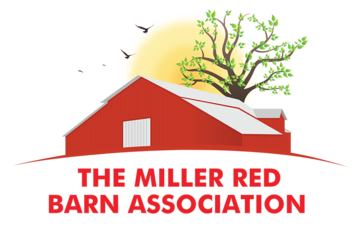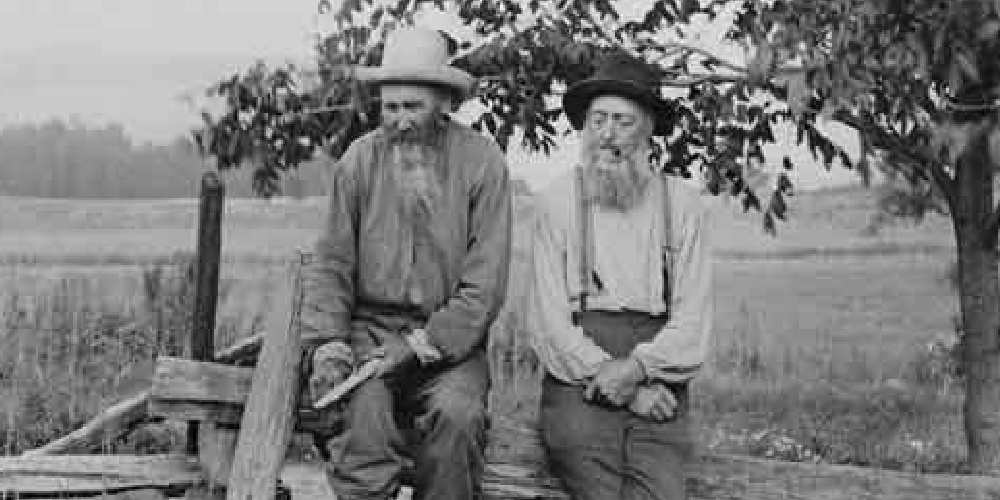Under the eaves… Volume 5 Issue 3
The Dirty Plate Route
Early in his career, Henry Miller established a policy with respect to tramps. He came to a ranch one day and saw what was obviously a tramp chopping wood. He said to the foreman, “Who is that chopping wood?”
“Oh”, said the foreman, “that’s just a tramp. I’m having him chop wood for his dinner”.
Henry Miller said, “never do that. If a man is so unfortunate as to beg for food, give it to him and win his gratitude. Never make him work for it and get his hatred”.
Another time when going through a ranch he saw a tramp sleeping in a hay stack. He said to the foreman, “Don’t let the tramps sleep in the hay stacks. Let them know that they can always have one night’s lodging in the barn. If they fall asleep in the hay stack, they may stay several days, break it all down, probably get to smoking and set it on fire. If you give them a bed in the barn, they will appreciate it, stay just one night, won’t use any matches, and then be on their way. Never let them stay more than one night”.
One day he came to a ranch house and found two more men is the dining room than showed on the payroll. He said to the foreman, “How’s this? You’ve got more men is the dining room than are on your payroll”.
The foreman said, “Two of them are tramps”.
Henry Miller said, “Don’t let the tramps eat with the men. First thing you know, you will have the men saying they are treated like tramps. Let the men eat first and the tramps afterwards”.
One day Henry Miller was taken to task by the cook, who said, “Mr. Miller, I came here to cook for the men. I don’t like washing dishes for tramps”.
Henry Miller said, “All right, we’ll have the tramps eat after the men off of the same plates. They will clean them for you”.
The cook thought this was a good joke and did not press his point further, so these became the rules for the hobo hotels on the Henry Miller ranches:
- Never refuse a tramp a meal, but never give him more than one meal. A tramp should be a tramp and keep on tramping.
- Never refuse a tramp a night’s lodging. Warn him not to use any matches, and let him sleep in the barn, but never let him stay for more than one night.
- Never make a tramp work for his meal. He won’t thank you, if you do. Anyhow he is too weak to work before a meal and too lazy to work after a meal.
- Never let the tramps eat with the men. Make them wait until the men are through, and then make them eat off of the same plates. The coo should not be made to do extra work for tramps.
Miller & Lux ranches were well known for their Dirty Plate policy. There were two classes on the Route. Two distinct classes travel these whirls, distinct in speech and in appearance. One is the “burley” and one is the hobo of our railroad tracks who stops to recuperate for a few months on the way to or from San Francisco and Los Angeles but a class by itself, the old original order of shadow chasers, the man who never leaves the dirty plate route, who considers it home, is the “reservation stiff”. The peculiar part of it all, he looked down upon the “burleys” with hard-boiled hats and coal dust down their backs.
This was once brought to Henry Miller’s attention is a strange way. In company with Harvard Porter, a fallen mighty, he was going from North Camp to Dutch Boys stations on the ”inside whirl” when a band of canvasback ducks rose out of a pond. Canvasbacks! Exclaimed Porter, “The first of the season. Look out now for the roughs with itch browns 19 ½ collars and .22 caliber eyes. It means the snows have fallen in the north and soon bands of these toughs will be floating in and they’re a bad lot, take it from me. Never have anything to do with them”. (When the snow fell up north, the hobos, were on the move to warmer climates.)
Among the “burleys” one seldom if ever meets with an educated person, while with in the ranks of the ”reservations stiffs” there are many. And it seems the better educated, the deeper they have dipped into the fountain of knowledge, the more degraded and debased they are, especially when drunk and to be drunk is the aim and the ambition of most every rambler on the dirty plate route. Many would refuse a smoke but few will do the same with a drink. To satisfy this deep craving and desire they will do anything, even work and they will drink anything, even a local brew known as ”sheep dip” or “mule punch”, so named because of its powerful kick.
The nicknames or as they have it on the dirty plate route, the “ear marks” or “brands” are always apt, if not complimentary. For instance, one young fellow with a large nose is called “Spoon Bill” another with a twisted mouth “Funny Face”. “Flipity Flop” is applied to an ex-soldier who has the sleeping sickness and who “flops” whenever the spirit moves. “Seldom Seen” Murphy avoids the other men and only appears at mealtime is their company “Millionaire George” a youth extravagant with conversation money. “Silver Tip” a boy of 21 years whose hair is now white from a fever. There are many nicknames in the bunch. As for Swedes there are “Lone Swede”, “Loco Swede”, “Gunny Sack Swede”, “Crazy Swede” and the “Irish Swede”. The latter speaks English with an Irish brogue. At Seattle he deserted his ship and obtained work on a railroad crew of Irish natives’ from where he picked up his English.
But lastly of all the characters tramping the dirty plate route, the greatest of these is the “Grand Duke”, always drunk and always spouting Latin, Greek, or French. One morning, in a saloon in Firebaugh, he stood in the center of the room with a large glass of “sheep dip” in his hand, leering and smirking at it. Presently he sipped it, “Infamous stuff this, to soothe a thirst”, and shuddered. “Excuse me”, said he with a bow that displayed a flash of gentility. “Excuse me for flaunting Horace in your sodden faces but you’ll never appreciate the gem even should I reduce it to words of one syllable. But hear ‘Drink comrades, drink! Give lose to mirth. With joyous footsteps beat the earth and spread before the war-gods shrine. The Salinas feast, the sacrificial wine Bring Bring”. After repeating Bring several times he slowly sank to the floor like a wet towel, falling in a heap.
To the Late Henry Miller
A grand old man is laid to rest
And countless hearts feel sad
Because he was the truest, best
Friend the poor man ever had
For up and down his vast domain
Along this golden shore
No poor suppliant ever has
Gone hungry from his door
And if of all the virtues
The good book tells us of
The chiefest one is charity
We know that the God above
Will open wide the pearly gates
And ‘round the great wide throne
The angel choir will welcome
Dear Uncle Henry home.
San Francisco Examiner – anonymous
Henry Agard, Henry Miller’s long-time chauffeur said during an interview with Ralph Milliken, “it was Nickel who did away with the Dirty Plate Route. Then fires began everywhere. Granaries and haystacks. One granary full of barley. The Miller & Lux men all pleaded with Nickel to put back the Dirty Plate Route. “No! The doing away of the Dirty Plate Route has nothing to do with these fires,” was his reply. When Nickel finally put the Dirty Plate Route on again the fires absolutely stopped. I think that Miller never carried insurance on his San Joaquin Valley properties. Feeding the hobos was his method of insurance.”
____________________________________________________________________________________
References
One Man Show Henry Miller in the San Joaquin, Edited by Charles Sawyer, Interviews by Ralph Milliken, Los Banos: Ralph Milliken Museum Society, 2003)
______________________________________________________________________________
I hope that you had fun reading this story.
Questions and comments are always welcome. Or Subscribe to our newsletter
If you have not read all the Under the eaves… stories, and would like to “catch up” they are posted on our website.
If you or your company shop amazon.com for supplies, gifts or special things, please register with smile.amazon and select The Miller Red Barn. We will receive a percentage of each purchase you make, at no additional cost to you.

